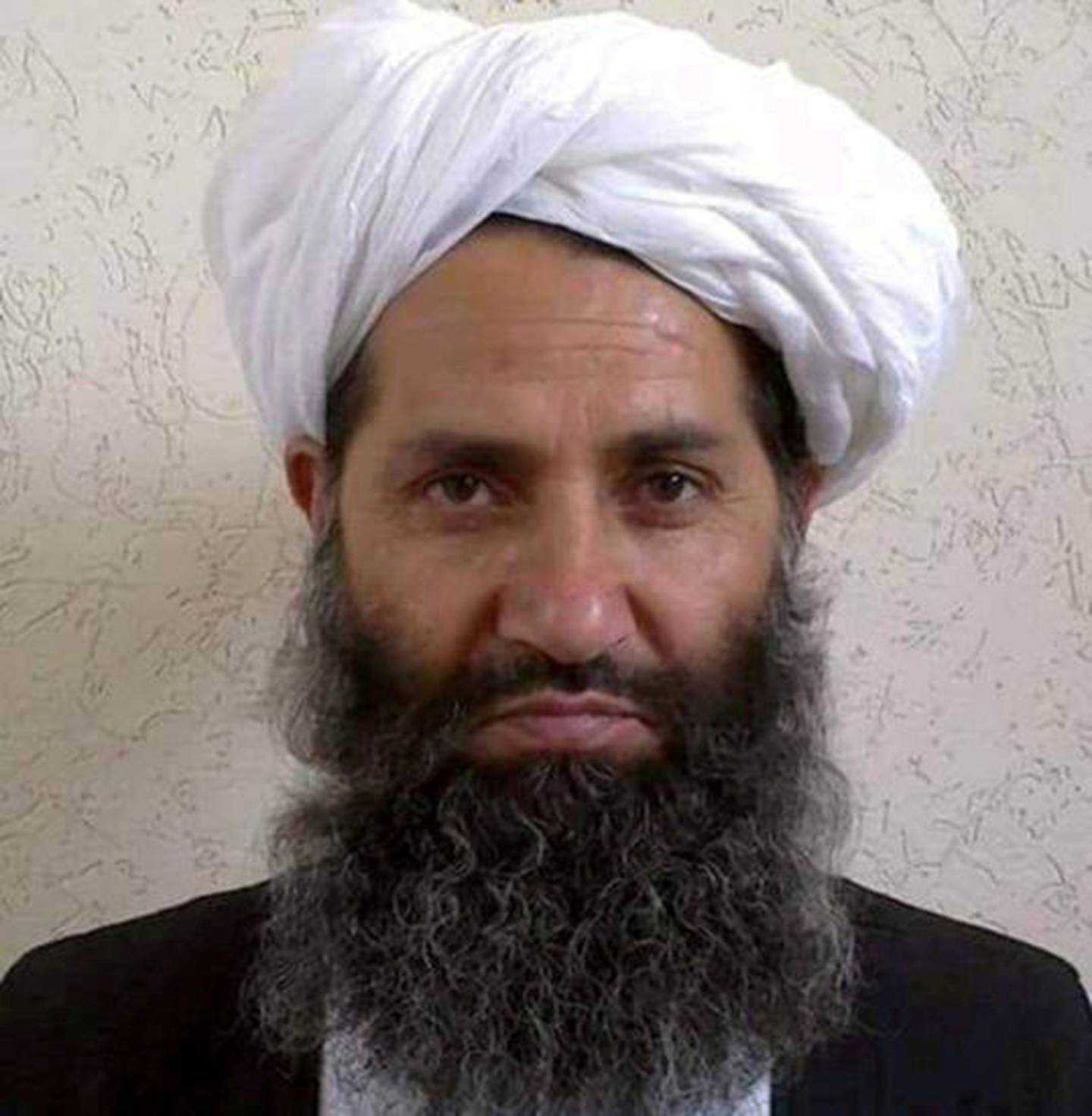Taliban leader Mawlawi Akhundzada makes first public appearance
01 November, 2021

Taliban supreme leader Mawlawi Hibatullah Akhundzada has made a rare public appearance in an address to supporters in the southern Afghan city of Kandahar, the group announced on Sunday.
Akhundzada has been the spiritual chief of the movement since 2016 but has remained a reclusive figure, even after his group seized power in Afghanistan in August following the collapse of the western-backed government.
Not known for his prowess on the battlefield, having preferred a life of religious and legal study, Akhundzada's low profile has fed speculation about his role in the new Taliban government after they took over Kabul in mid-August – and even rumours of his death.
On Saturday, he visited the Darul Uloom Hakimah madrassa to "speak to his brave soldiers and disciples", according to the introduction to an audio recording circulated by Taliban social media accounts.
Akhundzada – referred to as “Amirul Momineen” or commander of the faithful – gives a religious message.
The speech did not touch on politics, but sought God's blessing for the Taliban leadership.
"May God reward the oppressed people of Afghanistan who fought the infidels and the oppressors for 20 years," Akhundzada said in the recording. "My intention here is to pray for you and you pray for me".
In the 10-minute recording, he prays for the dead Taliban members, wounded fighters and the success of officials involved in the "big test" of rebuilding what they call the Islamic Emirate of Afghanistan.
"Let's pray that we come out of this big test successfully. May Allah help us stay strong," he said.
There was tight security at the event and no photographs or video have emerged.
Akhundzada is thought to have been selected to serve more as a spiritual figurehead than a military commander, but his unusually public statements will fuel speculation that he now plans to take a more central role in leading the new government.
He rose from low-profile religious figure to leader of the Taliban in a swift transition of power after a 2016 US drone strike killed his predecessor, Mullah Akhtar Mansour.
Believed to be in his fifties at the time he took over, he is from Afghanistan’s southern province of Kandahar – once the seat of power for the Taliban's government in the late 1990s.
Before taking charge, he was one of Mansour’s deputies alongside Sirajuddin Haqqani, leader of the feared Haqqani network based out of eastern Afghanistan.
Several senior Taliban sources have said Mansour bequeathed Akhundzada the leadership in his will, though some observers have argued in the past that dynastic succession is against the Taliban’s ideology.
After being appointed leader, he secured the backing of Al Qaeda chief Ayman Al Zawahiri, who showered the cleric with praise - calling him "the emir of the faithful".
This endorsement by Osama bin Laden's heir helped seal his credentials with the Taliban's long-time allies.
Akhundzada was tasked with unifying a Taliban movement that briefly fractured during the bitter power struggle after Akhtar's assassination, and the revelation that the leadership had hidden the death of their founder Mullah Omar for years.
His public profile has largely been limited to the release of messages during Islamic holidays, and Akhundzada is believed to spend most of his time in Kandahar, the main city in the Taliban's southern Afghan heartland.
His last message was on September 7, when he told the newly appointed Taliban government in Kabul to uphold sharia law as they govern Afghanistan.
Last week, Mullah Yussef Wafa, the Taliban governor of Kandahar and a close ally of Akhundzada, told AFP he was in regular contact with his mysterious chief.
"We have regular meetings with him about the control of the situation in Afghanistan and how to make a good government," he said in an interview.
"As he is our teacher, and everyone's teacher, we are trying to learn something from him," he added.
"He gives advice to every leader of Islamic Emirate of Afghanistan and we are following his rules, advice, and if we have a progressive government in the future it's because of his advice."
Meanwhile, the UN has said that Afghanistan is heading towards a humanitarian disaster, with half of the country’s population struggling to find enough food.
The Taliban have struggled to replace services provided by the western-backed government that they overthrew in August. Donors have since cut back on funding to Afghanistan’s aid-dependent economy.
Source: www.thenationalnews.com
